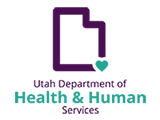Health Indicator Report of Routine Medical Care Visits
Clinical preventive services are important for maintaining good health. Early detection and treatment of disease improve the chances of full recovery. Physician counseling can influence health behaviors and prevent disease entirely in many cases. It is especially important for persons in poor health to have a primary physician who understands their medical history and problems and can give them appropriate care that fits their medical and social context.
Routine medical check-up in the past 12 months by race, Utah, 2020-2022
Notes
Age-adjusted to the U.S. 2000 standard population based on 3 age groups: 18-34, 35-49, and 50+.Data Sources
- Utah Department of Health and Human Services Behavioral Risk Factor Surveillance System (BRFSS) [https://ibis.utah.gov/ibisph-view/query/selection/brfss/BRFSSSelection.html]
- Behavioral Risk Factor Surveillance System Survey Data, US Department of Health and Human Services Centers for Disease Control and Prevention (CDC).
Data Interpretation Issues
Question Text: "About how long has it been since you last visited a doctor for a routine checkup? A routine checkup is a general physical exam, not an exam for a specific injury, illness, or condition." Beginning in 2011, BRFSS data include both landline and cell phone respondent data along with a new weighting methodology called iterative proportional fitting, or raking. This methodology utilizes additional demographic information (such as education, race, and marital status) in the weighting procedure. Both of these methodology changes were implemented to account for an increased number of U.S. households without landline phones and an under-representation of certain demographic groups that were not well-represented in the sample. More details about these changes can be found at: [https://ibis.utah.gov/ibisph-view/pdf/opha/resource/brfss/RakingImpact2011.pdf]. As with all surveys, some error results from nonresponse (e.g., refusal to participate in the survey or to answer specific questions) and measurement (e.g., social desirability or recall bias). Error was minimized by use of strict calling protocols (up to 15 calls were made to reach each household), good questionnaire design, standardization of interviewer behavior, interviewer training, and frequent, on-site interviewer monitoring and supervision.Definition
Percentage of Utah adults who reported a routine check-up in the past year.Numerator
Number of survey respondents who reported a routine check-up in the past year.Denominator
Total number of survey respondents excluding those with missing, "Don't know/Not sure," and "Refused" responses.How Are We Doing?
In 2022, 70.2% of Utah adults reported having a routine check-up within the past 12 months (age-adjusted rate).How Do We Compare With the U.S.?
Nationally, the rate of recent doctor visits is higher than in Utah. Comparing age-adjusted rates for 2022, 74.4% of U.S. adults had a routine check-up in the past year, whereas 70.2% of Utah adults had a checkup in the past year.What Is Being Done?
The Utah Department of Health and Human Services administers programs to improve access to care, such as Medicaid, Children's Health Insurance Program (CHIP), Utah's Premium Partnership for Health Insurance (UPP), and clinics for children with disabilities. Local health departments provide preventive services such as immunizations and screenings at low or no cost to persons who cannot otherwise afford them.Available Services
Utah Medicaid Program: phone 1-800-662-9651, or visit [https://medicaid.utah.gov/] Utah Children's Health Insurance Program (CHIP): [[br]] phone 1-877-KIDS-NOW (1-877-543-7669) or visit [https://chip.health.utah.gov/] UPP (Utah's Premium Partnership for Health Insurance):[[br]] phone: 1-888-222-2542 (M - F, 8 a.m. - 5 p.m.) [[br]] or visit [https://medicaid.utah.gov/upp/] The Association for Utah Community Health (AUCH) is the primary care association for the state of Utah. AUCH members include Federally Qualified Health Centers (FQHC) and other providers who strive to meet the needs of the medically underserved. AUCH and its member organizations are part of a statewide and national movement to reduce barriers to health care by enhancing primary care service delivery through prevention, health promotion, and community participation. Association for Utah Community Health[[br]] 860 East 4500 South[[br]] Salt Lake City, UT 84107[[br]] Phone: (801) 974-5522 [[br]] [http://www.auch.org]
Page Content Updated On 03/08/2024,
Published on 07/26/2024
